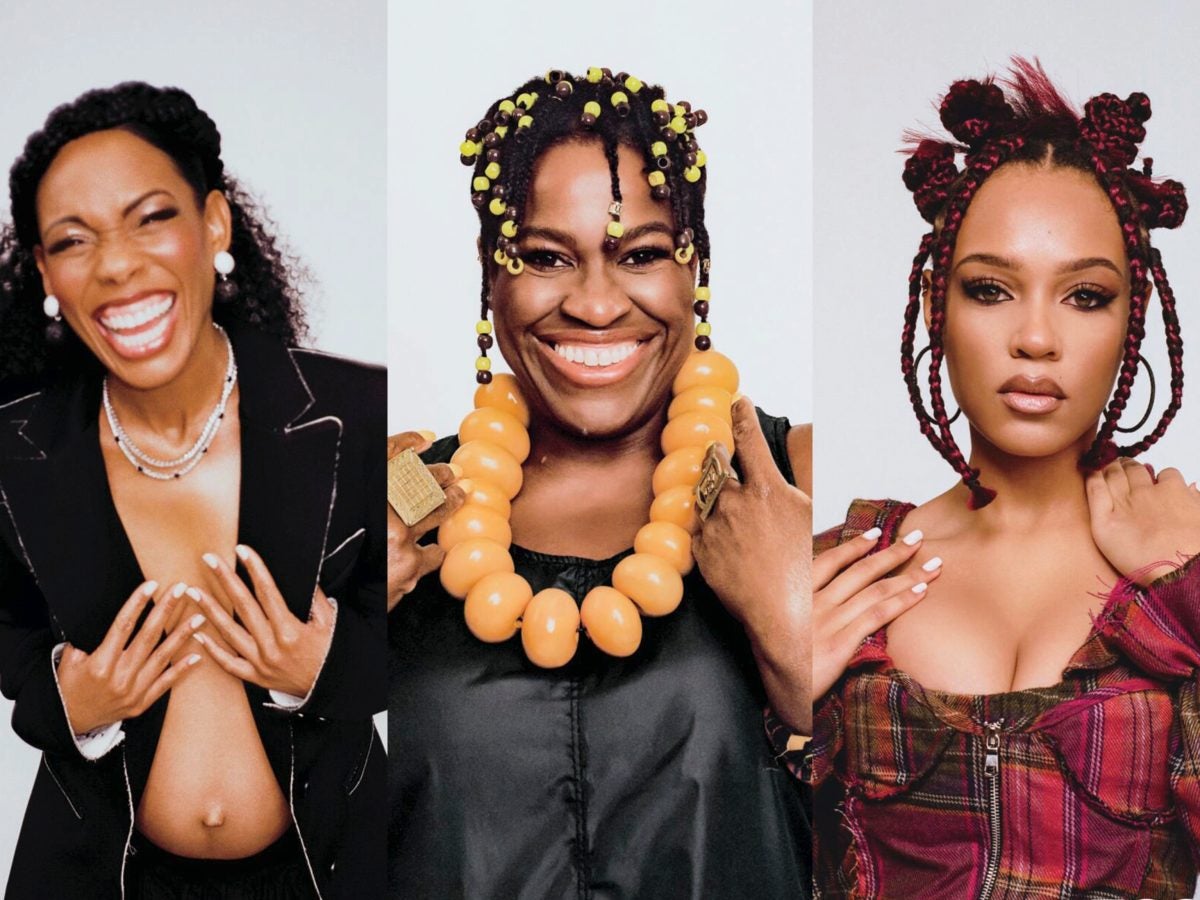
The tale of Franklin Saint and the empire he built on pure white rock unfolds like a neo-Western empire saga on Snowfall. Though criminally ignored by prestige television awards committees — the show shockingly received zero Primetime Emmy nominations in the acting or screenwriting categories in any of its previous five seasons — the FX series has captivated critics and organically acquired a loyal fan base since its premiere on July 5, 2017. Often dismissed as just another popular urban crime melodrama, the series marks the final work from John Singleton, who died just three seasons in after a sudden stroke on April 28, 2019. The program separates itself from the cacophony of gunfire and gang plays that characterize your average drug narrative by unflinchingly staring the viewer in the eye and delivering truths— some harsh, some joyous, all fully authentic — about the rise of the crack cocaine epidemic in Los Angeles in the 1980s.
While the show’s main plot remains centered on the rise of burgeoning drug lord Saint, played by British-Nigerian Damson Idris, and the interwoven tales of his entry into the game, the players across South Central L.A. and Central America, and the U.S. government’s dubious involvement therein, many of the moments that stick come from the supporting narratives of the women within their orbit. These women include the long-suffering single mother trying to instill morality and the value of hard work in her young son, while the streets offer a faster, more dangerous path to money; the girl-next-door turned neighborhood dope fiend; and the party girl who became a top lieutenant in the drug trade—and now threatens to claim a crumbling empire as her own.
As the mothers, spouses, queenpins and addicts that both fed and fought the spread of crack throughout the Black community, actresses Michael Hyatt, Angela Lewis, Gail Bean, Devyn Tyler and Reign Edwards have expertly added layers of nuance to the stories of quick wealth, bloodshed and the addiction that fuels it all. Now, after facing a slew of moral conflicts while fighting to keep her integrity intact and her son alive, Hyatt says she’s prepared for the bittersweet goodbye to her pivotal role as Franklin’s mother, Cissy Saint.
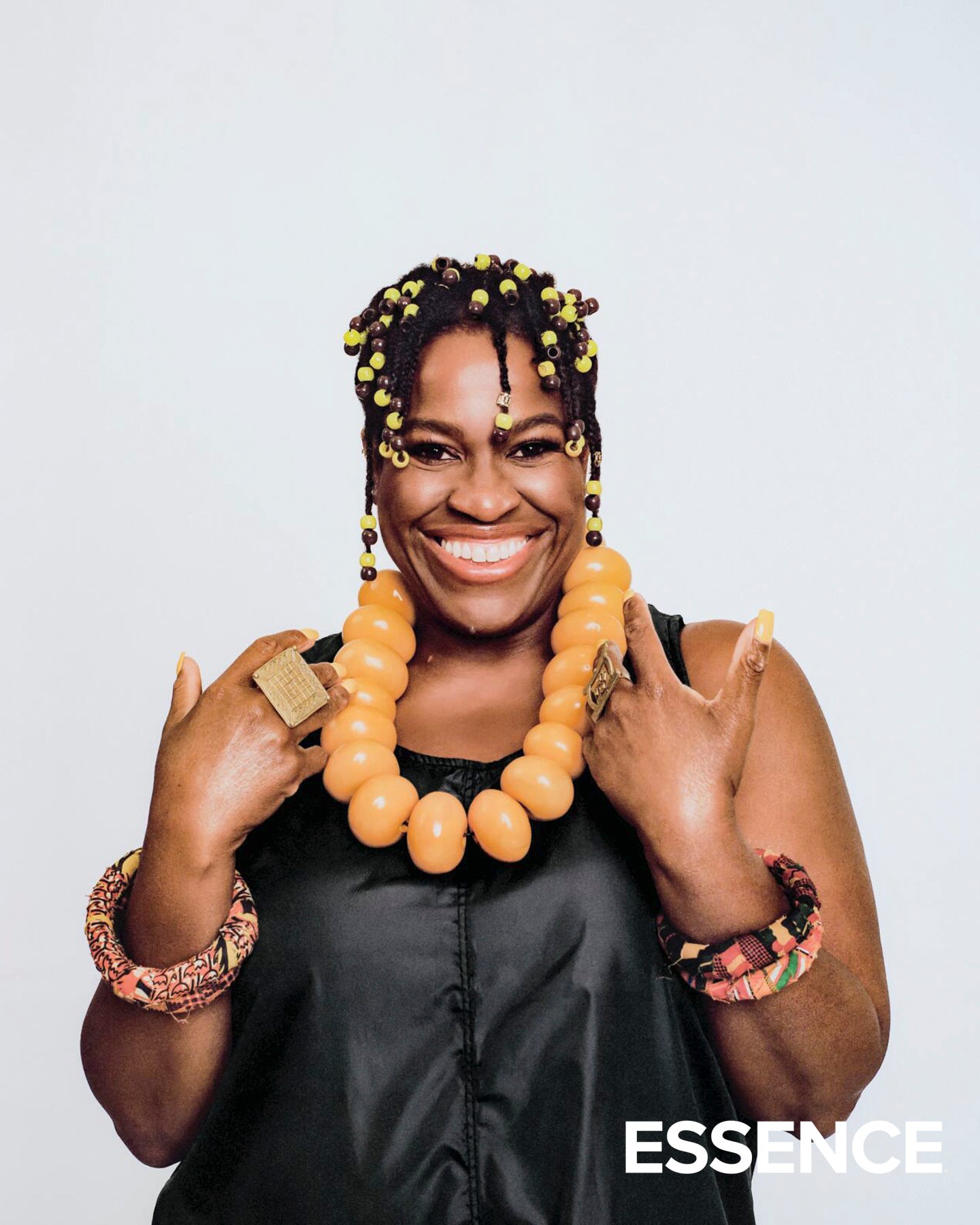
MICHAEL HYATT
“I’m ready to let go because this is what John’s intention was,” Hyatt says. “Especially now that we no longer have him, it was always important for me to maintain the integrity John wanted. He left an indelible mark on my consciousness—my understanding of who I was as an artist in this industry and what was possible as a person of African descent in this industry.” She adds tearfully, “He broadened my understanding of myself.”
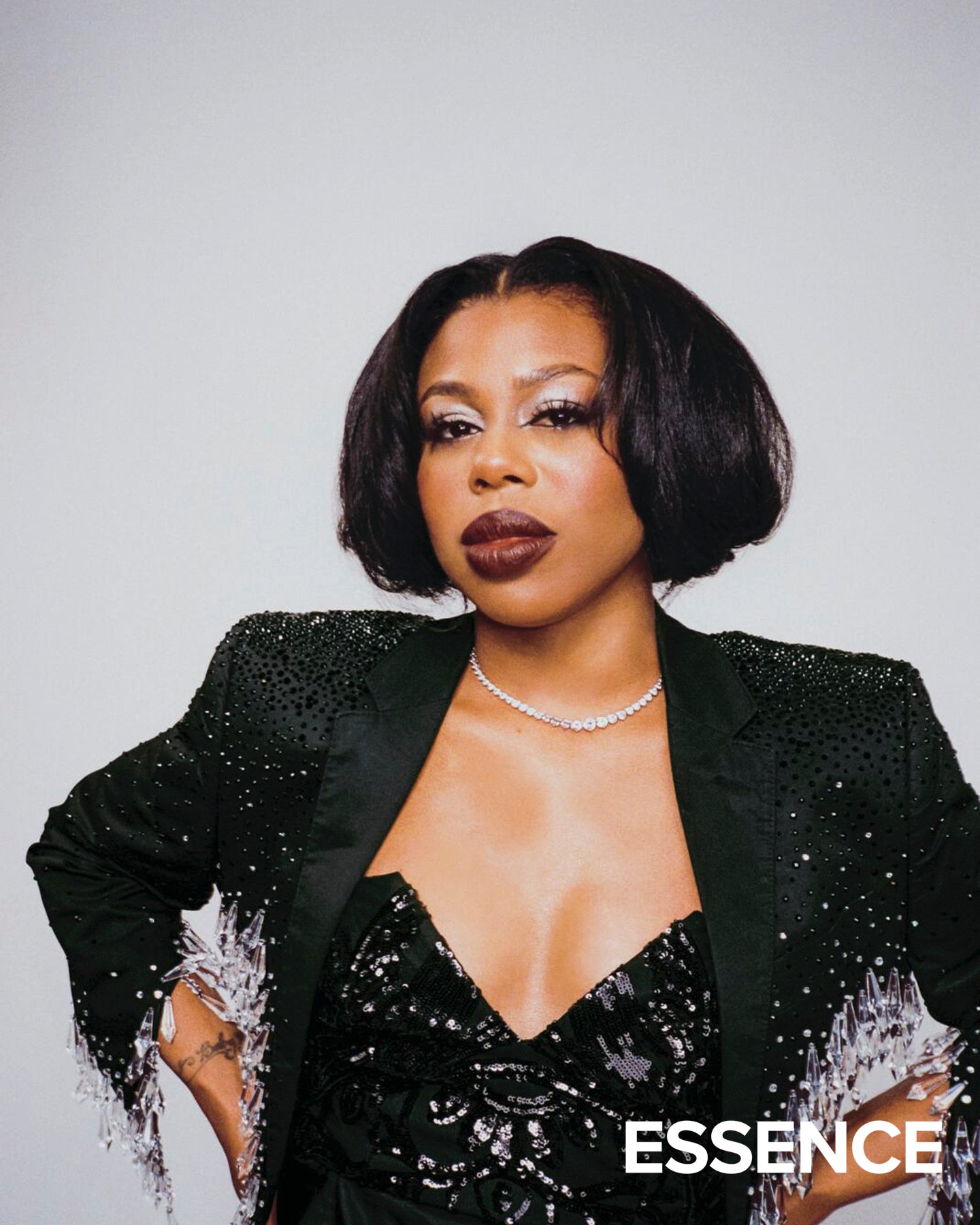
GAIL BEAN
In the role of Wanda Bell, Bean portrays a once bright-eyed drug dealer girlfriend who becomes the local addict. Now on track back to sobriety after nearly drowning in the painful depths of addiction, the character reveals a journey that’s an example of the thin line so easily tripped across, one that permanently changed many thriving Black communities at the turn of the century.
“I really wanted to show that we’re not much different from one another,” Bean explains of her role. “Sometimes we are one incident, or one party, or one lost job away from an unfortunate situation.”
Describing her and her colleagues’ storytelling as the “highest” and “purest” form of art, she adds, “There were so many moments where our writers so bravely did not shy away from the truth. We didn’t do things for the shock factor.”
Where it would have been easy to wade into stereotypes of the Black women who raise drug dealers, partner with them or use their product, Snowfall has shown these women’s stories in full color.
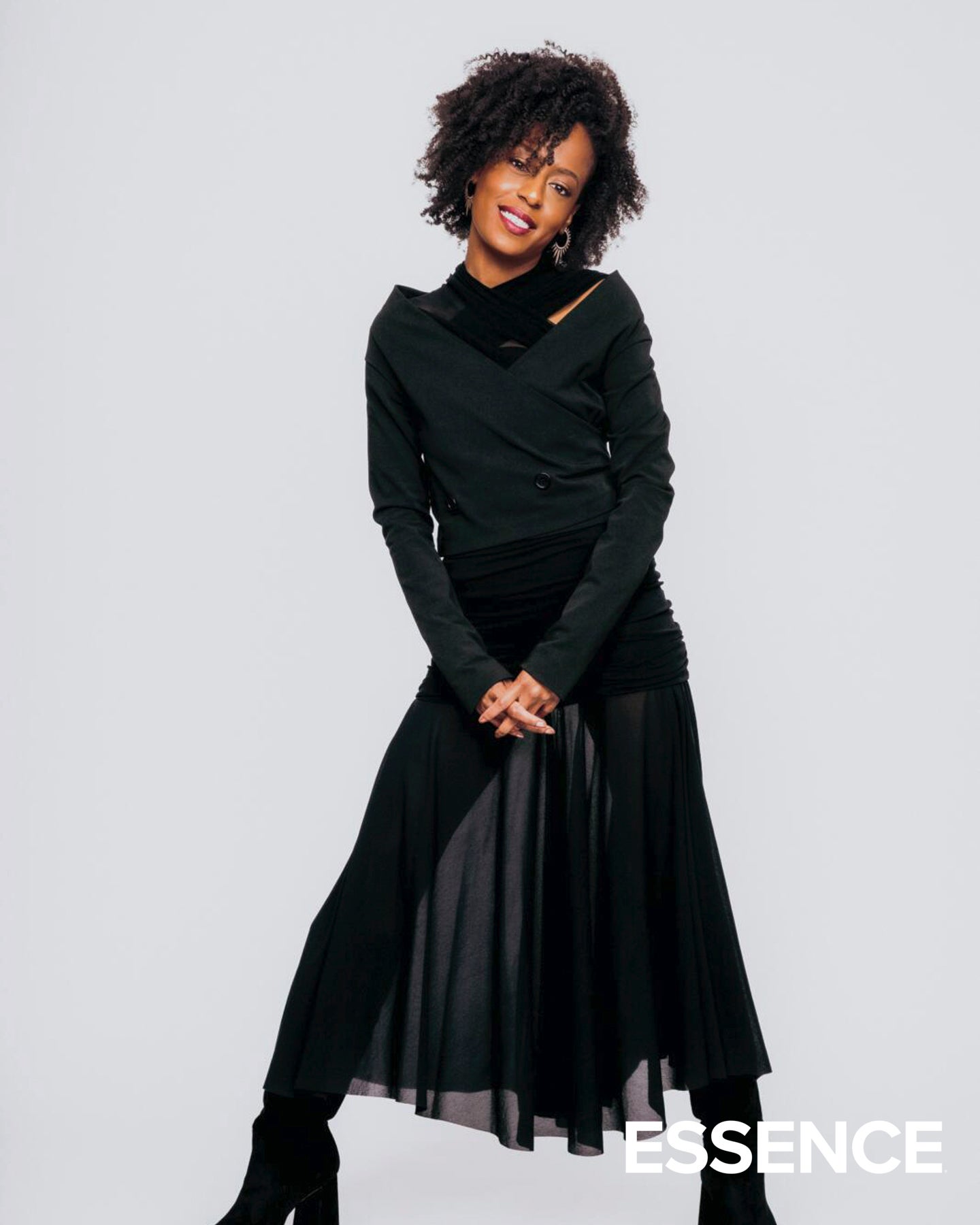
DEVYN TYLER
“There’s so much life that happens in between the chaos,” says Tyler. Joining the cast in season five as Veronique Turner, Franklin’s lawyer and lover, and mother to his unborn child, the actress relishes the opportunity to express the fullness of this particular human experience. “I think it’s really important to acknowledge that there is life in there, there is love in there and there is perseverance in there,” she says. “In all circumstances and in all aspects of life, there’s always love, there’s always relationships, there’s always family. I think it’s easy for us to forget that.”
The on-screen family bonds are echoed in the behind-the-scenes sisterhood these actresses are able to find with one another on set. Though each of their characters’ arcs are essential threads in the overall tapestry of the show, the women rarely had the opportunity to play against one another. It was a treat for both the audience and the actresses when Bean and Edwards were able to connect in season three, to demonstrate the rapid downward spiral Edwards’ character, Melody Wright, experienced after one run-in with crack at a party.
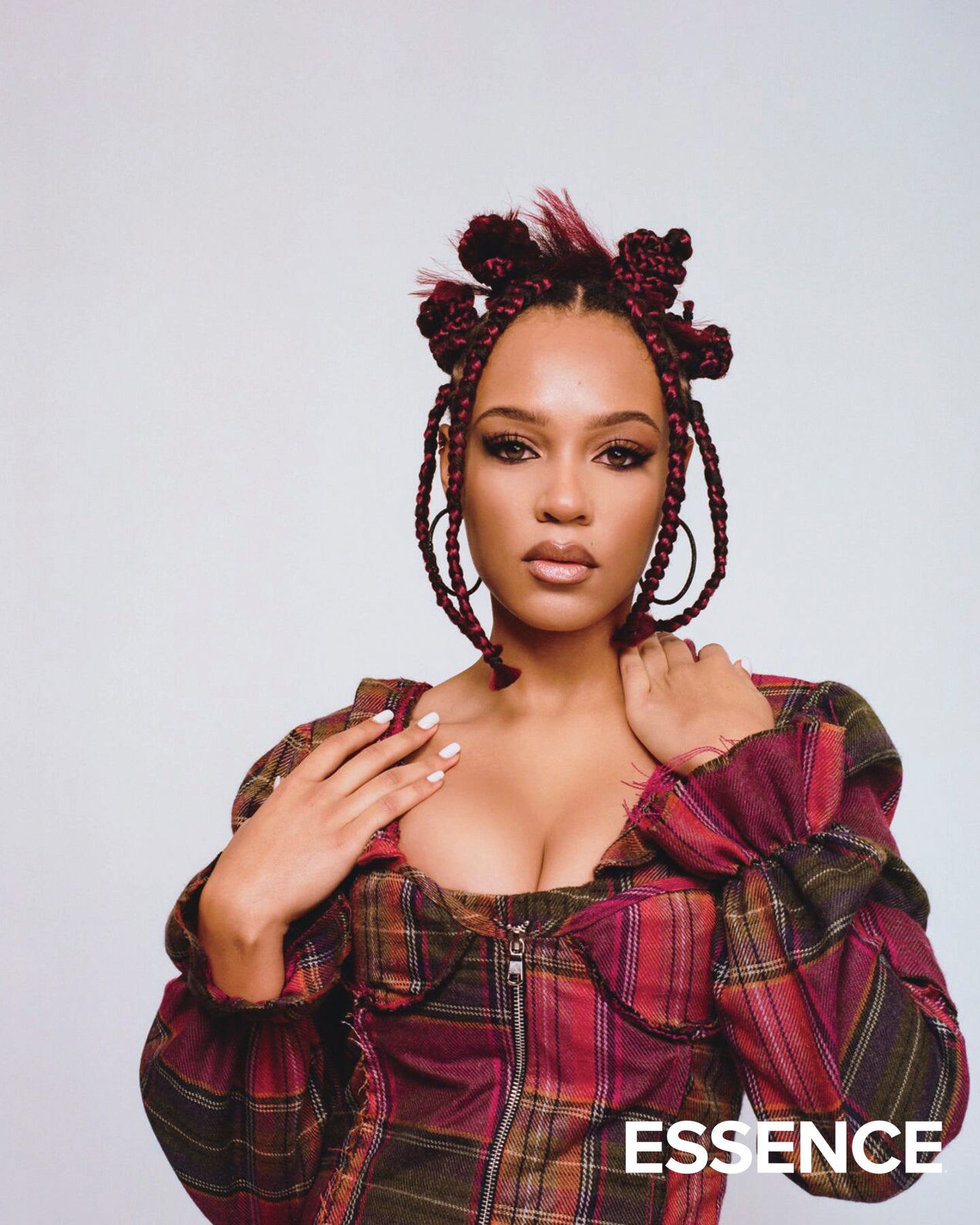
REIGN EDWARDS
“We studied so much together and prayed so much together,” Edwards says of her time with Bean. She recalls how before his death, Singleton, aiming to pull the highest level of performance out of his actors, arranged for the actresses to meet with members of his family and community who had lived through addiction . “It was so beautiful to be able to do that,” Edwards adds. “I’m just grateful to have been a part of it.”
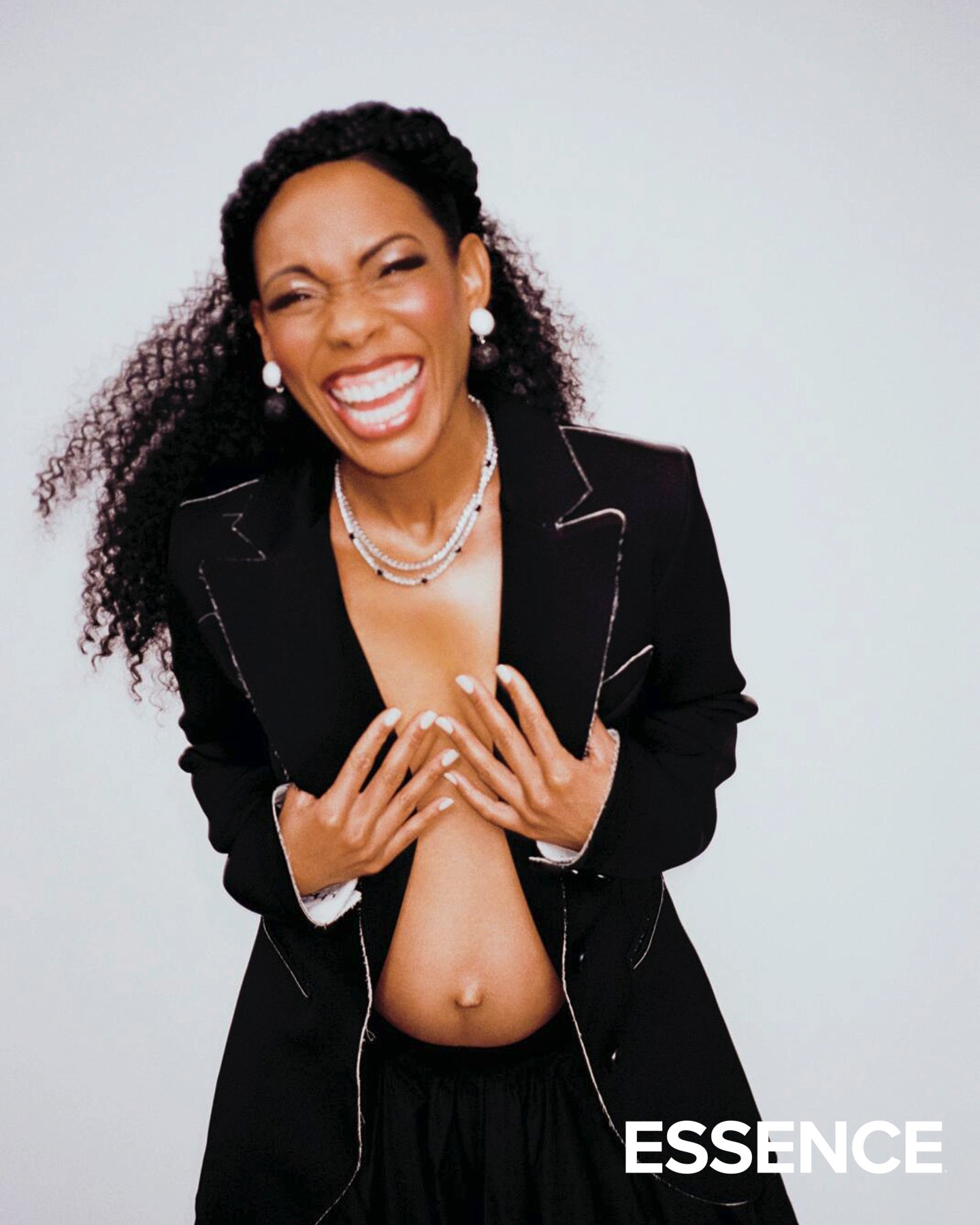
ANGELA LEWIS
As Louanne, known more affectionately as “Aunt Louie” Saint, Lewis has had perhaps the most drastic character arc from the show’s inception to its looming finale. As her nephew’s first lieutenant, she’s spent the better part of the storyline supporting and facilitating Franklin’s drug-empire dreams. But fans were shocked at the end of last season when she finally made a play strictly out of self-interest.
“Last season was all about Louie realizing and then deciding she’s got to do some things for herself,” Lewis says. “It pissed a lot of people off, and that’s okay. Sometimes you’ve got to make some people mad in order to shine your brightest, and I think that’s what she did.”
Initially, Lewis had to dig deep to access a broken, hardened character like Louie and comprehend her decision-making; but she quickly discovered that, as with the show’s other characters, the focus had to remain on the humanity at her core.
“I did a deep dive in a meditation, and I discovered that she really was a full human being who had had her heart broken over and over and over again,” Lewis says. “I promised her that I was going to take care of her, that I was going to bring her humanity to the forefront.”
For each of these actresses, humanity is the common thread that has kept them delivering raw, honest, powerhouse performances that speak to the conscious memory of a time past—and the cultural shift it caused that reverberates to this day. And within that narrative, one constant remains.
“I think the biggest thing is just knowing the strength of a Black woman, the fierceness of a Black woman, our ability to overcome,” Bean says.
Reflecting on the experience of creating this masterpiece of television drama, Hyatt adds, “You have to let it be, come what may, and just trust and love yourself and love the journey through it. That’s been Cissy, that’s been Michael, that’s been Snowfall, that’s been Mom, that’s been all of it. Cissy is just a representation of me and so many me’s. That is the beauty of this story.”
Production credits:
Hyatt: Hair, Tara Copeland, Makeup, Camara Aunique.
Bean: Hair, Kaori Nik, Makeup, Bobbie Riley.
Edwards: Hair, Abena Shearphysique Afrane, Makeup, Bobbie Riley.
Lewis: Hair, LaRae Burress, Makeup, Christine Tirado.
Tyler: Hair, Richard Grant, Makeup, April M. Chaney.
Photography Assistant: Darien Vilchez.
Stylist Assistant: Savannah Tyson-Yarbrough.
Production Coordinators: Alaura Wong, Gabriel Bruce.
Production: The Morrison Group.
Special Thanks to Four Seasons Hotel Los Angeles at Beverly Hills.